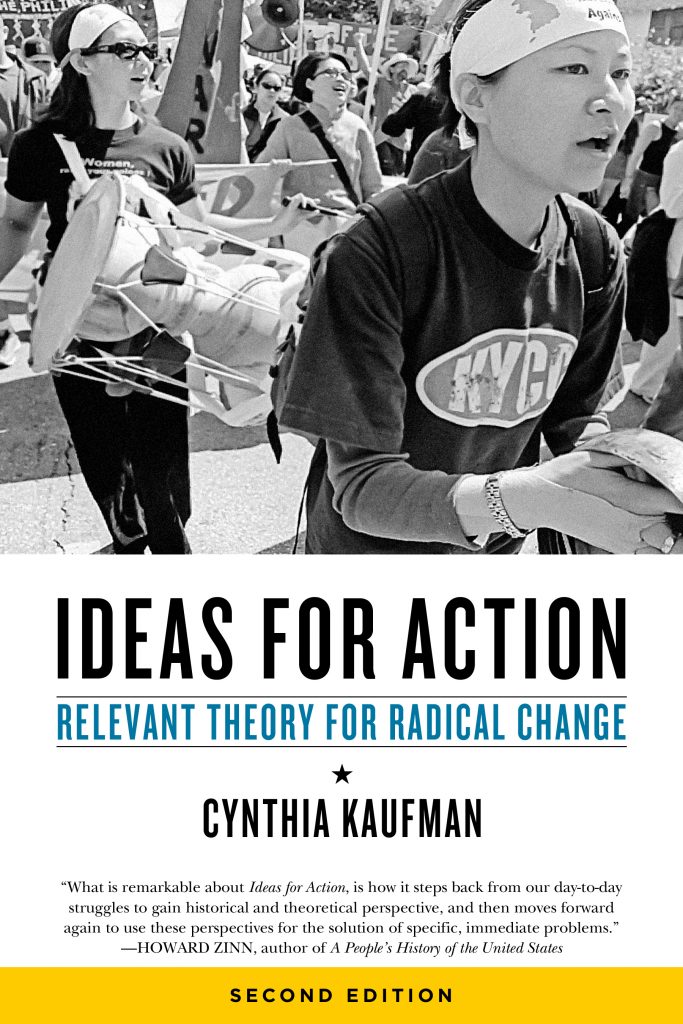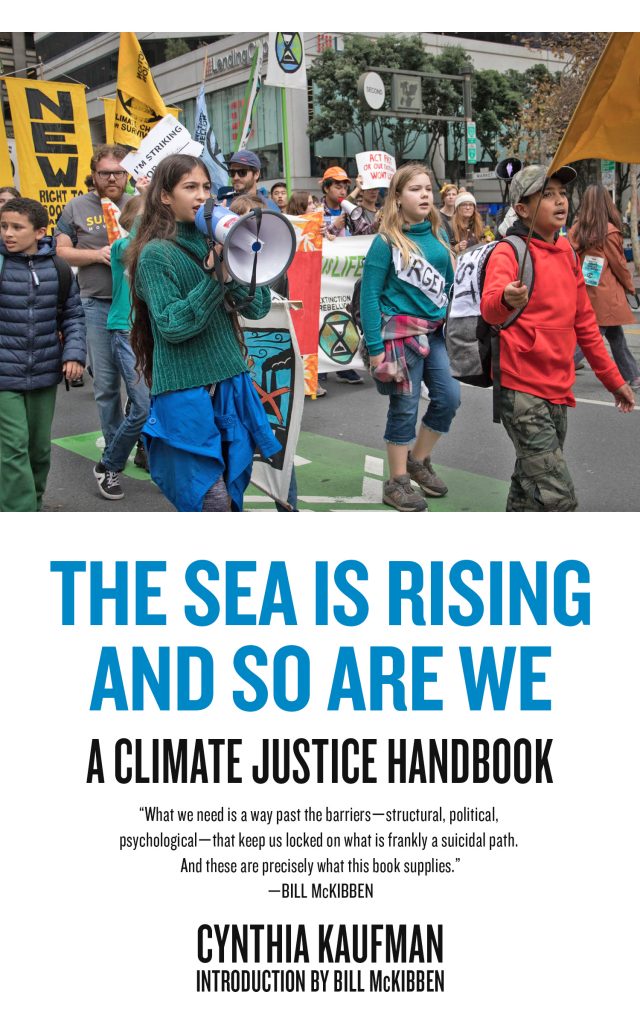By Anne O’Brien
The Commons Library
Anne O’Brien reviews Ideas for Action: Relevant Theory for Radical Change by Cynthia Kaufman.
When asked by Holly to review my favourite activist book, I jumped at the opportunity to review Ideas for Action: Relevant Theory for Radical Change by Cynthia Kaufman. I had to resort to Google Books to find this one since my copy has been permanently borrowed (a sure sign of a good book and it’s now available in a new edition from PM Press– ed). I only had the introduction in hard copy. Even then I was exhilarated by Kaufman’s writing: her stories of her initial activist involvement reminded me how mesmerising and full of promise the first few wobbly steps into campaigning and radicalism can be.
“As people begin their engagement with movements for social justice, they often struggle to understand what they are doing and why they are doing it. Without some basic literacy in social theory, it is easy to be confused about what sort of issues one should be working on, how this work will ever end up making a difference, and how the things one doesn’t like in the world are related to each another.”
Kaufman’s clear style cuts to the heart of decades and layers of activist debates in the United States, which both resonate with my experiences in student activism in Sydney, and help me wrap my head around those debates I didn’t experience, showing what important values and considerations are at stake.
I think this clarity is the book’s greatest strength. Kaufman grounds her abstractions in stories to illustrate how mental models we create help us to understand experiences of oppression, organising and struggle, informing the political tendencies and strategies that emerge in the work of grassroots groups. Kaufman connects theory (e.g. conceptions of freedom, utopia, liberation, gender, sexuality, race, capitalism, nature, systems, strategy, alliances) with the day to day dilemmas that activists face in the practical work of challenging injustice.
Kaufman has an inclusive, humane and appreciative tone towards many points of view, bringing to the fore the richness and diversity of activist praxis. Rather than talking down to the reader, oversimplifying or being self righteous, she respects us and leaves ultimate judgements up to us, whilst implicitly encouraging flexibility and non-dogmatism by showing a breadth and depth of theoretical resources in the ways we can understand, educate and mobilise.
Over the last year in university circles I have often been frustrated by the lack of respect given to activists even by supposedly progressive academics. This book is a refreshing antidote. As a professor, Kaufman identifies as part of social movements and owes most of her insights to movement learning. She brings her theoretical knowledge into this book showing which areas of theory may be useful to activists, and thus is a bridge between activism and academia.
Ideas for Action: Relevant Theory for Radical Change by Cynthia Kaufman is a gem: a wealth of activist knowledge and experience. It’s the kind of book I would encourage libraries to stock, educators to teach classes around, and activists to run reading groups on.
“It is easier to see how our actions can make a difference when we can see how the actions of others have made a difference in the past, and when we can understand activists are ordinary people like ourselves. Once we see the ways that the work of social change activists have had a significant impact on our lives a cynical word view that says we can’t make a difference begins to look less appealing. Why settle for a world in which we feel powerless to affect the problems around us, when we can connect ourselves to the people and movements that are responsible for making a better world?”
Cataclysmic climate change may seem inevitable, but Cynthia Kaufman says it’s not too late. The only way to turn the tide is concerted political action taken by people of all skill sets and temperaments. Kaufman has packed a lot of analysis and advice into a new book about climate change, its causes and challenges, and the opportunities it presents for the left.
Cynthia Kaufman, The Sea is Rising and So Are We: A Climate Justice Handbook PM Press/Between the Lines, 2021








